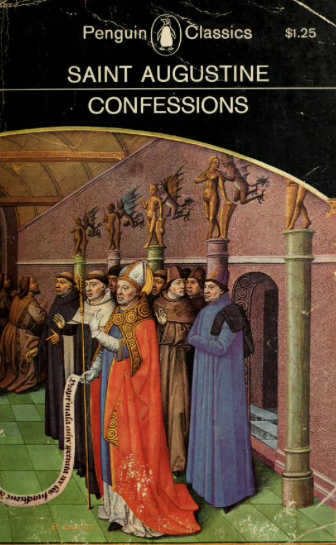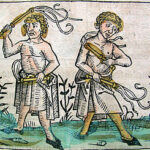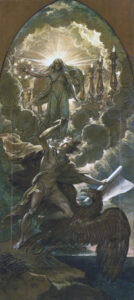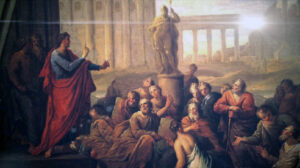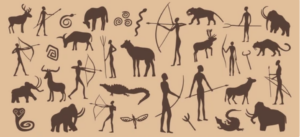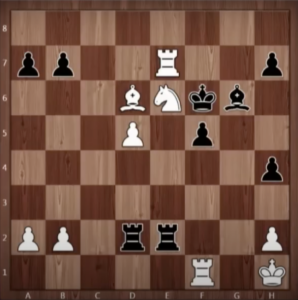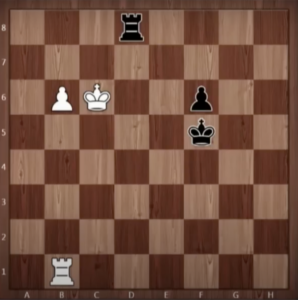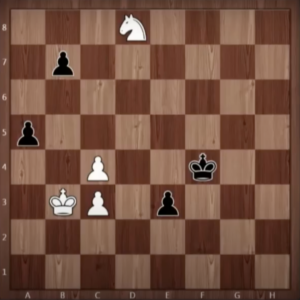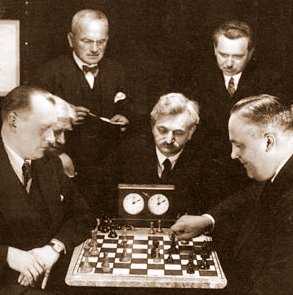I would like to add something to what I said the day before yesterday about North Korea. I have continued to watch propaganda videos of Americans against this country that practices harsh totalitarianism against its citizens. Yesterday, for example, I was watching this interview of an American with a North Korean woman who escaped from her country as a child and wrote a book that became a bestseller in the US. I abruptly interrupted the interview when the American interviewer confessed that he had a mixed-race daughter with his Asian wife. As old visitors to The West’s Darkest Hour know, we call that the sin against the holy spirit of life: an unforgivable sin that requires the punishment the Visigoths of Hispania meted out to the couple who dared to miscegenate.
In my post the day before yesterday, ‘Synchronicity?’, I linked to an article by Kerry Bolton, who uses slightly different terminology than I did (hard/soft totalitarianism). He talks about totalitarianism that controls its citizens through pain (like North Korea) in contrast to the totalitarian system that controls us through pleasure (like the US). In that post, and I now use the terminology of Yockey’s admirer, I said that a totalitarianism that controls us through pleasure is more effective than the one that controls us through pain, in that its citizens don’t even realise that they are inside a Matrix in the sense that every totalitarian regime imposes a false worldview on its subjects. In North Korea, on the other hand, as the common citizenry suffers from starvation, they surreptitiously watch pirated videos of American films. The aforementioned Korean woman, for example, tells the anecdote that the first foreign film she illegally watched was Titanic.
In other words, North Koreans who suffer and begin to rebel know that there is a society very different from their own, with very different values, and that some of their acquaintances have tried to escape from this totalitarian prison by crossing the border into China. The ordinary westerner, on the other hand, is unaware that he too is in a totalitarian prison: he is as utterly controlled by pleasure as a fish surrounded by water.
Even the white nationalists ignore that they are in a Huxley-like ‘brave new world’. Had they known they would have rebelled not only against their Christian religion that gave rise to it, but against democracy, the Constitution of their founding fathers, so-called human rights (i.e., neochristianity) and what we are taught in the universities, the MSM and social media. They would also have rebelled against this culture of pleasure and would have as their paradigm to emulate Sparta, Republican Rome before Julius Caesar, and of course Hitler’s Germany. Paraphrasing Eduardo Velasco, the contemporary westerner knows no pain, no honour, no blood, no war, no sacrifice, no camaraderie, no respect or combat; and thus he doesn’t know the ancient and gentle Goddesses known as Gloria or Victoria.
And the saddest thing of all is that even racialists won’t begin to wake up until the music stops; that is, until the consequences of the dollar collapse converge with an amplifying energy devolution that will kill proportionately as many humans as North Koreans starve to death under the regime of fat Kim Jong Un.
 This guy, by the way, seems to be the only one in that country who overfeeds, as many Americans currently overfeed. (The first time I visited the US the average American was lean; now there is an epidemic of obesity in the culture that controls them through pleasure: not only an excess of available food but porn, promiscuous sex, degenerate cellphones, etc.)
This guy, by the way, seems to be the only one in that country who overfeeds, as many Americans currently overfeed. (The first time I visited the US the average American was lean; now there is an epidemic of obesity in the culture that controls them through pleasure: not only an excess of available food but porn, promiscuous sex, degenerate cellphones, etc.)
I will not link again to Bolton’s long article, in which he mentions controlling virtually one hundred per cent of the population through pleasure. Serious readers of this site should have already read it.
